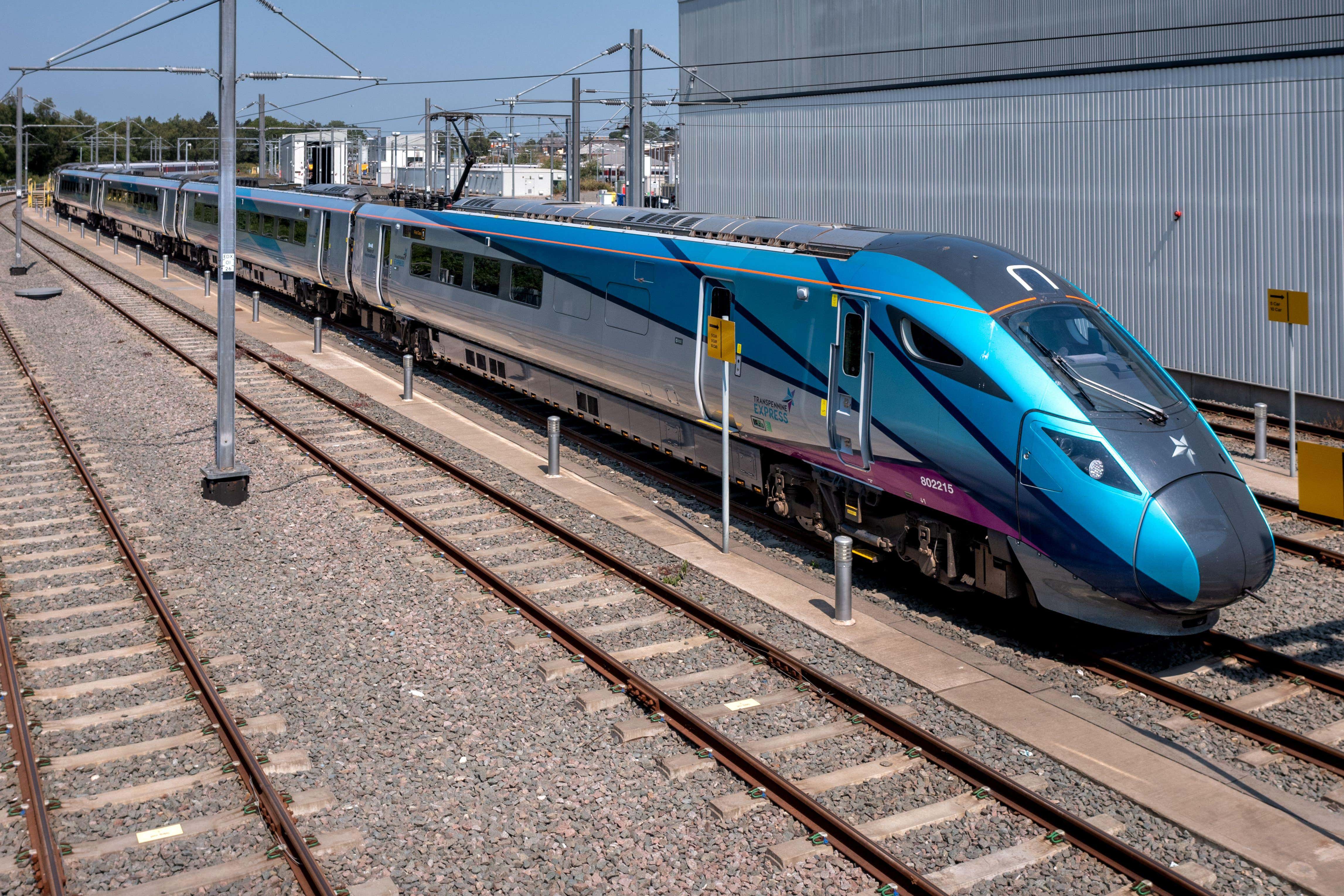UK’s first intercity battery train trialled to cut emissions and fuel costs
Manufacturer Hitachi Rail said one of three diesel engines on a TransPennine Express Nova 1 train has been replaced by a battery.

Your support helps us to tell the story
From reproductive rights to climate change to Big Tech, The Independent is on the ground when the story is developing. Whether it's investigating the financials of Elon Musk's pro-Trump PAC or producing our latest documentary, 'The A Word', which shines a light on the American women fighting for reproductive rights, we know how important it is to parse out the facts from the messaging.
At such a critical moment in US history, we need reporters on the ground. Your donation allows us to keep sending journalists to speak to both sides of the story.
The Independent is trusted by Americans across the entire political spectrum. And unlike many other quality news outlets, we choose not to lock Americans out of our reporting and analysis with paywalls. We believe quality journalism should be available to everyone, paid for by those who can afford it.
Your support makes all the difference.The UK’s first intercity battery train is being trialled to reduce emissions and fuel costs.
Manufacturer Hitachi Rail said one of three diesel engines on a TransPennine Express (TPE) Nova 1 train has been replaced by a battery.
Testing of the modified train started on Friday, with trial runs on TPE routes due to take place this summer.
This is an important next step towards a more energy efficient and greener railway
Hitachi Rail expects the battery to deliver the same levels of acceleration and performance as the diesel engine it replaced, while adding no additional weight.
The company believes emissions and fuel costs will be reduced by up to 30%.
The trial will examine how intercity trains can enter and leave non-electrified stations in zero-emission battery mode, boosting air quality and reducing noise.
The scheme is a collaboration between rolling stock company Angel Trains, TPE, US-based tech company Turntide Technologies and Hitachi Rail.
It is hoped battery technology could reduce infrastructure costs by limiting the need for overhead electric wires to be installed in tunnels and over complex junctions.
The UK Government has set a target of phasing out diesel-only trains by 2040.
We’re looking forward to seeing the results and how well the batteries work on our network
TPE engineering, safety and sustainability director Paul Staples said: “We’re really pleased to be a part of this innovative and critically important trial of battery technology.
“We take our environmental responsibilities seriously and are constantly looking at ways of making rail travel even more sustainable and efficient.
“This trial will allow us to assess the exciting new technology on our Nova 1 train.
“We’re looking forward to seeing the results and how well the batteries work on our network.”
Hitachi Rail chief director for the UK and Ireland Jim Brewin said: “Hitachi has invested more than £15 million in research and development to deliver a UK first in battery train technology.
“Collaborating closely with our partners, Angel Trains and TransPennine Express, we are committed to showcasing how the rail industry can significantly lower costs and emissions.
“This is an important next step towards a more energy efficient and greener railway.”
A 12-month trial of a rapid-charging battery train which could help end diesel operations on branch lines was launched by Great Western Railway in west London in March.